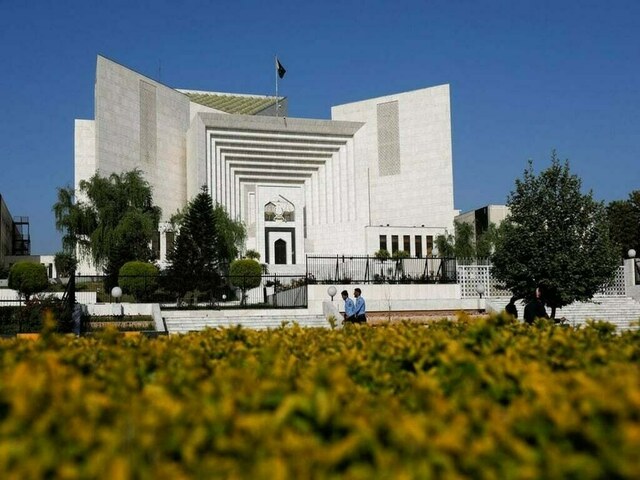The unrest within the Supreme Court is intensifying. In a recent order concerning delayed pension payments by the National Bank of Pakistan, Justice Mansoor Ali Shah emphasized that adhering to the Supreme Court’s decisions is not optional.
“Disregarding or delaying the implementation of the Supreme Court’s verdicts challenges the very foundation of our legal system,” Justice Shah stated in the order, asserting that the apex court, as the ultimate interpreter of the Constitution, must have its decisions enforced. He cautioned that failure to comply could set a dangerous precedent, potentially leading to executive overreach.
Justice Shah’s comments, which were also highlighted in his subsequent remarks at a conference, have fueled speculation about the forthcoming developments in the reserved seats case. Recently, the government passed legislation aimed at undermining the Supreme Court’s order on this matter, with its representatives and allies launching attacks on both the judgment and the eight judges involved.
Justice Shah noted in his order, “The power to hold individuals or entities in contempt for failing to comply with a court order is crucial to the judiciary’s ability to function effectively. Without this power, the judiciary would be ineffective, unable to enforce its decisions and thus jeopardizing the administration of justice.”
If contempt proceedings are initiated, the Election Commission of Pakistan (ECP) might be the first to face consequences. The ECP has frequently acted as though it is exempt from obeying laws or court orders, and in this instance, it has ignored the Supreme Court’s directives regarding the allotment of reserved seats to the PTI, instead cooperating with the government to undermine the verdict.
However, the court itself bears some responsibility for the current situation. Past actions, such as endorsing military takeovers and removing at least two prime ministers, have fostered distrust among the political class and contributed to ongoing controversy. Nonetheless, its verdicts were implemented in those cases.
Additionally, the court must address the lack of a detailed verdict in the reserved seats case, which continues to provoke controversy. While it is imperative for the court to enforce its rulings and uphold constitutional order, providing a detailed verdict soon is essential for resolving objections and ensuring clarity.
The reserved seats case has become a highly charged political issue, requiring both wisdom and restraint to navigate successfully.


